- Home
-
All Products
- eGift Card
- Sleep Balm
- CBD Sleep Balm
- Recovery Balm
- CBD Recovery Balm
- Immunity Balm
- Little Buffalo Balm
- Simply Balm
- Heart & Soul Duo
- Magnesium Salt Soaks (1.85 oz)
- Magnesium Salt Soak (8 oz)
- Magnesium Salt Soak Bundle
- Self Care Candle Gift Set: Calming
- Self Care Candle Gift Set: Soul Warming
- Sleepy Buffalo Gift Set (2-Pack)
- The Gift of Wellness Set (3-Pack)
- The Gift of Wellness Set (2-Pack)
- Craft Your Own Gift Set (3-Pack)
- ADD ON: Extra Burlap Gift Bag
- Find in Store & Events
- Testimonials
- Contact
- Buffalo Beauts Partnership
- Blog
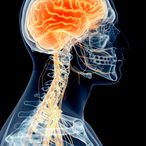 With Valentine’s Day approaching, it’s a good time to think about emotional health. This celebration of love brings up reactions ranging from total delight all the way to resurfacing relationship trauma. And it’s important to take a look at how days like this that are promoted by our culture resonate in our emotions and, yes, even in our bodies. Especially in our bodies. And of course you know what we’re going to say next… magnesium is part of these reactions in our bodies! Like many other reactions, the relationship between emotional health and magnesium is one that goes in both directions: our magnesium levels affect our emotional health, and our emotional health affects our magnesium levels. Much of this is about our relationship with stress and our sympathetic and parasympathetic nervous systems. Our sympathetic nervous system is the system that activates our “fight, flight, or freeze'' response when we are in danger; our parasympathetic nervous system is the system that returns our body to a sense of calm so we can resume normal functioning. However, when we are constantly exposed to stress or danger without the opportunity to process it or achieve a sense of safety, our bodies and emotions can get stuck in a constant state of sympathetic nervous system activation. This causes a cascade of physical effects in the body, particularly where magnesium is concerned.. In The Magnesium Miracle (2017), Dr. Carolyn Dean writes that “Adrenaline, noradrenaline, and cortisol (elevated in chronic stress) deplete magnesium. Stress causes elimination of magnesium through the urine, further compounding magnesium deficiency. ‘Stress’ is such an overworked word, but we all suffer physical, emotional, and mental stress every day, and every bit of it drains magnesium” (p. 14). What does this have to do with Valentine’s Day? Love? Relationships? If you find yourself in a negative, toxic, or even abusive and traumatic relationship with a partner, friend, or family member (or even an overly-critical and negative self-talk relationship with yourself), it can cause your body to lose magnesium. Which then makes it more difficult to manage stress and maintain emotional health in the future. For a little more on how this works, Dr. Dean goes on to say that “When the adrenals are no longer protected by sufficient magnesium, the fight-or-flight hormones adrenaline and noradrenaline become more easily triggered. When they surge erratically they cause rapid pulse, high blood pressure, and heart palpitations. The more magnesium-deficient you are, the more exaggerated is the adrenaline response” (Dean, 2017, p. 14). All of this sounds pretty terrible, right? The flip side of this, however, is the hopeful side, because this negative-feedback system is reversible! If you are in a state of emotional health (having a loving and supportive partner, family, and friends) or cultivating love for YOURSELF, it may actually help your body to maintain your magnesium levels and, consequently, better physical health… leading to better emotional health because then you are able to manage stress better in the future, making this a positive-feedback loop. “Magnesium calms the nervous system, relaxes muscle tension, and lowers the pulse rate, helping to reduce anxiety and panic attacks” (Dean, 2017, p. 14). How can you make this happen? Some of it is nutritional - you can eat magnesium-rich foods and/or supplement with magnesium. (And we have just released our new Soul Salt Soak with rose, cardamom, bergamot, and vetiver for emotional grounding and easing anxiety.) Other healthy ways to calm the nervous system include deep breathing, meditation, yoga, tai chi, massage, acupuncture, reiki, EFT tapping, or getting out into nature. So... on Valentine's Day, be sure to show some love to your parasympathetic nervous system! Dean, C. (2017). The Magnesium Miracle (Second Edition). Ballantine Books. Disclaimer: The purpose of this post is to share news and information about our products as well as research-based information on magnesium that we have found useful. We are NOT medical professionals and do not intend this post to be taken as medical advice. Our products are not FDA approved or approved for medical use, nor are they intended to diagnose, treat, or cure any disease. Please be sure to consult a medical professional with any questions about utilizing our products along with your current health regimen!
0 Comments
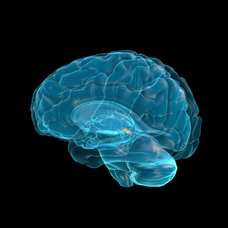 January often brings the surfacing of complex emotions. Some may love the fresh start after the holidays, the return of routines, and the promise of the coming year. Others may feel a bit bummed out that the holidays are over and go through a period of the “Winter Blues” as they get back into regular routines. Either way, though, the prospect of enduring the rest of the long cold winter, especially here in the Buffalo snow belt, has very real effects for a lot of people and can sometimes result in Seasonal Affective Disorder (SAD), which is a specific type of clinical depression. According to Dr. Norman Rosenthal, as cited in the article “Seasonal Affective Disorder” (2018), SAD tends to show up as depression, increased appetite and cravings for carbohydrates, the need to sleep more, decreased activity, and social withdrawal. But did you know that magnesium deficiency may have a part to play in people developing SAD? This has to do with magnesium’s connection to the melatonin cycle, inflammation, neurotransmitters, and vitamin D. MELATONIN: Melatonin is a hormone that is produced by the pineal gland in the brain in response to darkness. It regulates the cycle of sleeping and waking. When the sun sets earlier, the body naturally wants to fall asleep earlier as melatonin is giving those signals. And while we do want melatonin levels to rise in the evening to help us fall asleep, we don’t want them to rise TOO early and make us sluggish before we actually want to go to bed. Magnesium helps to naturally regulate the melatonin cycle. INFLAMMATION: On top of the melatonin cycle being out of sync, many people who experience SAD also have higher levels of inflammation (“Seasonal Affective Disorder,” 2018). Like the melatonin cycle, inflammation is a necessary process for the body... in the right situations. Inflammatory cytokines are necessary in the body to fight infection and promote healing. However, also like the melatonin cycle, the inflammatory process is the most beneficial when it is well regulated and not over- or under-functioning. Magnesium helps to regulate the immune system so it functions properly. NEUROTRANSMITTERS: People with SAD often have lower levels of some neurotransmitters, such as dopamine, norepinephrine, and serotonin, which is a precursor to melatonin. VITAMIN D*: The decreased level of neurotransmitters, particularly serotonin, may be a result of lower levels of vitamin D, a hormone that works to regulate calcium in the blood (“Seasonal Affective Disorder,” 2018). Vitamin D is naturally produced when the body is exposed to sunlight, and magnesium is essential for the body to be able to convert vitamin D to its active form, making it more available for the body to absorb and use. What may be able to help support all of these systems and ease the symptoms of SAD? There is not a single solution, but rather a combination of approaches that work well together!
* NOTE: Very interestingly, recent research suggests a near-zero death rate from COVID-19 among people with vitamin D levels over 50. (Under 20 is generally considered deficient, and under 30 is generally considered insufficient.) The article “COVID-19 Mortality Risk Correlates Inversely with Vitamin D3 Status“ (Borsche, L., Glauner, B., & von Mendel, J., 2021) claims that “The datasets provide strong evidence that low D3 is a predictor rather than just a side effect of the infection. Despite ongoing vaccinations, we recommend raising serum 25(OH)D levels to above 50 ng/mL to prevent or mitigate new outbreaks due to escape mutations or decreasing antibody activity.” In other words, along with being vaccinated and masking, talking to your doctor about supplementing with vitamin D might be a great way to keep yourself healthy (or make viral infection less severe) during the current COVID surge! Disclaimer: The purpose of this blog post is to share information about our products as well as research-based information on magnesium that we have found useful. We are NOT medical professionals and do not intend this newsletter to be taken as medical advice. Our products are not FDA approved or approved for medical use, nor are they intended to diagnose, treat, or cure any disease. Please be sure to consult a medical professional with any questions about utilizing our products along with your current health regimen! 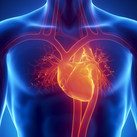 This may sound strange, but we want you to take a moment and Google “heart disease” and “hard water.” Go ahead! Then, take a moment and scroll through the articles that come up. (And, no, obviously not everything on Google is reliable. But you should be seeing some scientific journal articles come up pretty high on the list…) What could hard water possibly have to do with heart disease? Minerals. In particular, high levels of calcium and magnesium. And many studies have found a correlation between harder water and lower levels of cardiovascular disease in communities. If you want to read more about this, Dr. Mildred Seelig and Dr. Andrea Rosanoff explain it in greater depth in the first few pages of The Magnesium Factor (2003, p. 7-10). Why does having more minerals in your water matter for your cardiovascular health? According to Seelig and Rosanoff (2003), “Heart muscle, when healthy, contains even more magnesium than other muscles do. And when magnesium levels become low, they can drop more in heart muscle cells than in other muscles [...] Blood vessel muscle cells need healthy amounts of magnesium to relax properly after each contraction. They can become stiff and inflexible if their magnesium gets too low” (p. 10). This happens especially if calcium (which tenses or stiffens muscles) is very high, perhaps through supplementation, and is not balanced out by high magnesium. In Transdermal Magnesium Therapy (2011), Dr. Mark Sircus even goes so far as to say that “If you are interested in heart health you have no choice but to be interested in magnesium” (p. 29). He claims that, if magnesium in the heart muscle drops too much, it can cause rhythm disorders or even spasms and cramps (p. 30). In other words, it can cause angina and even heart attacks. (For more details about how calcium and magnesium interact in heart muscle, check out this article entitled “Magnesium and Heart Disease: What’s the Link?” by Juliann Schaeffer. Schaeffer cites Seelig and Rosanoff, as well as sharing Dr. Carolyn Dean’s proposal that maintaining high levels of magnesium may actually be more important than being completely focused on cholesterol as is so common in cardiovascular medicine today.) Magnesium deficiency is also an issue in diabetes and insulin resistance - we will cover that in another newsletter because there is so much information to include! Does this mean that you can switch from taking your heart medication to taking magnesium? Definitely not - you’ll want to continue any current medications and talk to your doctor about adding magnesium - but it may be able to help! Are there any situations where magnesium is not appropriate to take? It may not be the right choice for you if you have very low blood pressure already or have a kidney condition. Also, it could be a problem for those taking blood thinners like Coumadin or Warfarin. In general, we always advise talking to your doctor about the magnesium (and the essential oils in our balms) if you are on medication!  At our markets and on email and social media, we get a LOT of questions about magnesium and pregnancy! Most of the time, people are looking to alleviate those painful pregnancy leg cramps for themselves or someone they know. (And, yes, magnesium can definitely help with that, just like it can help with restless legs or other muscle cramps!) However, there are several other reasons to use magnesium during pregnancy. One of them is that the body’s mineral needs change during pregnancy. In Transdermal Magnesium Therapy (2011), Dr. Mark Sircus writes that “During pregnancy the body needs more minerals and estrogen takes care of the higher absorption” (p. 139). He also writes that In all likelihood pregnancy cannot be normal unless magnesium levels are adequate. The concentration of magnesium in the placental and fetal tissues increases during pregnancy. The requirements for this element in a pregnant woman’s organism generally exceed its supply; hence, pregnancy should be considered a condition of ‘physiological hypomagnesemia’ [...] During pregnancy, magnesium helps build and repair body tissue in both mother and fetus. A severe deficiency during pregnancy may lead to preeclampsia, birth defects, and infant mortality. Magnesium relaxes muscles and research suggests that proper levels of magnesium during pregnancy can help keep the uterus from contracting until week 35 (p. 236-237). If people's magnesium levels are inadequate and they go into labor early, hospitals will often use intravenous magnesium sulfate to stop labor. For those for whom a caesarian section is necessary, it is important to know that supplementing with magnesium can be helpful in the weeks before the surgery (if the C-section is planned) and the weeks following, as any surgery places a great deal of stress on the body and can deplete magnesium stores. Sircus claims that “Surgeons need to become familiar with the transdermal approach for then they can start their patients off with heavy application weeks before surgery and for weeks after since this method of application can easily be done at home by the patients” (2011, p. 127). And, finally, for those who are trying to become pregnant, it is important to know that “Magnesium is needed for reproductive fertility and the use of pharmaceutical contraceptives is known to diminish magnesium stores in our body” (Sircus, 2011, p. 239). In other words, if you are planning to stop taking pharmaceutical contraceptives like the pill, it may be helpful to add magnesium to your routine as part of that process! While other factors like thyroid levels, other hormones, and inflammation also affect fertility (functional medicine practitioners can help with these), restoring your magnesium levels is always helpful. If you’re looking to try our magnesium balms for pregnancy, know that lavender oil is generally considered safe for the 2nd and 3rd trimester of pregnancy, so our Sleep Balm can be used then. (We would definitely not advise using our Recovery, Immunity, or Little Buffalo Balms, as the essential oils are not safe for pregnancy.) However, because so many essential oils are not recommended for the first trimester of pregnancy, we would recommend our Simply Balm (which has all of our magnesium and emollient ingredients but does not contain any essential oils) for the 1st trimester as well for use while breastfeeding. And we always advise (especially if your pregnancy is considered high risk) consulting your doctor before supplementing with any new mineral. They may encourage the use of transdermal magnesium, or they may find that another form of magnesium is more appropriate for you to use instead of the transdermal magnesium or alongside it. The most important thing to remember is that magnesium can support a healthy pregnancy in many ways!  Between the pandemic and the back-to-school season, kids have definitely been on our minds lately! Kids have been through a great deal of stress over the past year and a half, and it's affecting their bodies and brains just as much as it's affecting those of adults. After all, let's not forget that stress actually causes our bodies to excrete magnesium at higher rates than normal. Not to mention that for a variety of reasons (including sensory issues) it can also be difficult to get kids to eat foods that are high in magnesium! According to “Magnesium: A Vital Nutrient for Children” by Melissa Peterson (2018), kids’ magnesium levels can also be affected by medications such as antibiotics, steroid inhalers, and antihistamines. What might magnesium deficiency look like in kids? Trouble sleeping, trouble focusing or concentrating, tense muscles or muscle twitches, impulsivity, and more anxiety than normal. According to Peterson (and many other sources), magnesium deficiency may even be linked with ADHD and autism spectrum disorders. (Of course, this does not necessarily prove causation, and you should always talk with your child’s doctor when making any choices about these conditions.) However, if you are looking to add something safe and gentle to your child’s routine in order to see if it can help, our Little Buffalo Balm is a great choice! It contains chamomile and calendula oils in addition to magnesium chloride and all of our moisturizing ingredients, and is safe for children 6 months and up. There are a few ways to use this balm for children. Several of our customers have told us that their children enjoy having it applied in a thin layer on the sole of each foot as part of a bedtime routine - just be sure to put socks or footie pajamas on so your child doesn’t accidentally touch the balm and get it in his/her eyes or mouth. It can help the child wind down and be calm so you can read a book together and then they can fall asleep more quickly. You can also rub the child’s back with it before putting pajamas on. However, if your child has a great deal of morning anxiety or hyperactivity before school or daycare, you could even apply it while getting them dressed in the morning. Finally, we’ve even heard from some of our customers that the balm has helped to ease their little ones’ nightmares! In the podcast episode “A Case Study: Herbs and Nightmares” (2020) from the Holistic Herbalism Podcast, clinical herbalists Katja Swift and Ryn Midura of the CommonWealth Center for Holistic Herbalism discuss herbal supports for healthy sleep as well as herbal allies for working through nightmares, particularly those that are linked to traumatic experiences. If your child suffers from nightmares (or even if you experience them yourself), the podcast is definitely worth a listen! And although we formulated this balm to be safe for children, adults can absolutely use it too! In fact, it’s become one of our favorites :)  Over the past couple of years, and particularly during the COVID-19 pandemic, talk of “boosting” the immune system is everywhere. All of us want our bodies to be strong in the face of illness, and unfortunately we are seeing the effects of COVID-19 on people with pre-existing conditions, particularly poor metabolic health. However, as we’ve seen with the COVID-19 cytokine storm (a cascade of inflammation in severe cases) as well as the growing prevalence of autoimmune conditions in recent years, just as many issues can come from an overactive immune system! In the best case scenario, what we really want is a well-regulated immune system that neither over-reacts nor under-reacts to threats. And this is where magnesium enters the picture! NOTE: Before we continue, we want to emphasize that you should ALWAYS discuss supplements with your doctor! Also, there has not been enough research on magnesium at this point to make definitive conclusions, nor are we able to make claims about our products. However, the research that has been done thus far is very promising! We already know that magnesium is part of over 300 different processes and enzyme reactions in the body. And while vitamin D is being widely recognized as an important part of immune health and many people are using it as part of their effort to combat the possibility of COVID-19 infection, what is less often mentioned is the fact that magnesium is necessary for the body to be able to use vitamin D. In their article “Magnesium and Vitamin D Deficiency as a Potential Cause of Immune Dysfunction, Cytokine Storm and Disseminated Intravascular Coagulation in covid-19 patients,” Dr. James DiNicolantonio and Dr. James O’Keefe claimed that “supplementing COVID-19 patients with vitamin D, especially if they are vitamin D deficient and utilizing concomitant magnesium, which is required to activate vitamin D, could provide benefit” (2021). Later in the article, DiNicolantio and O’Keefe go on to say that magnesium regulates natural killer cells and T cells involved in the body’s immune response, an undesirable calcium-to-magnesium ratio increases inflammation, and that “a deficiency in magnesium promotes chronic low-grade inflammation, increased inflammatory responses during viral infections and a pro-thrombotic state” (2021). The article even discusses magnesium affecting the ability of the body to respond appropriately to viruses such as Epstein Barr and Hepatitis B and possibly being able to work against blood clots. Again, we are NOT proposing that magnesium or our products can cure or treat COVID-19 or any other condition. We are a very small business without the funding to do large studies. However, we are presenting the information that has informed us and inviting you to continue reading and discussing it with your healthcare providers to see what might be a good option for you! It might be our product, but it might be another form of magnesium or something else entirely. What we have heard from some of our customers who have had COVID was that they felt our Immunity Balm was able to open their breathing passages, ease congestion, and just help manage some symptoms while they were sick and then during their recovery. We are also advocating for eligible people to get vaccinated (we both have) and continue masking in necessary situations, especially as the Delta variant continues to spread. We have seen too many people around us—particularly in vulnerable communities and communities of color—lose their own lives or the lives of family and friends to COVID, or become severely ill for extended periods of time. The choice does not have to be between the vaccine/masks and natural health methods. Multiple mitigation methods can work together to protect ourselves AND those around us! 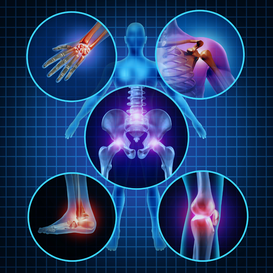 When we go to our farmer’s markets and events, people tell us a lot about the health issues they’re experiencing. And one thing that stands out to us is how many people are in pain. There are sports injuries. Work injuries. Neck and back pain from a physically intensive job or from sitting at a computer all day. Headaches and migraines. Muscle cramps or PMS cramps. Arthritis. Bursitis. And a host of autoimmune-related conditions (fibromyalgia, rheumatoid arthritis, etc.) that are becoming more common all the time. And while magnesium cannot completely solve these conditions, there is often quite a bit it can do to help! After all, what these conditions have in common is inflammation. There are a few main things to know about how magnesium works in the body to ease pain and inflammation: According to Dr. Mark Sircus' book Transdermal Magnesium Therapy (2011), Dr. Jeff Schutt claims that “contraction and relaxation are dependent on adequate cellular levels of magnesium” (p. 216). In other words, transdermal magnesium can be used topically on muscles and tendons in order to allow them to contract and relax normally without injury. Our customers have even told us that they use our Recovery Balm not only after a workout but also BEFORE, to prevent so much inflammation from happening in the first place! Going one step further and utilizing massage with magnesium “increases flexibility and muscle tone and therefore reduces the risk of injury. Other benefits are: breakdown of scar tissue after injury, improved blood circulation and oxygenation, and providing general relaxation and reduced stress” (Sircus, 2011, p. 217). In fact, several massage therapists and chiropractors in the area even offer our magnesium balms to their patients! Of course, Dr. Sircus is clear that this is also true for non-athletes experiencing injuries or pain (such as back pain), and that applying transdermal magnesium or taking a warm bath in magnesium salts can help to alleviate inflammation in the body. (Of course, it is always important to discuss pain with a doctor before deciding whether to apply heat or cold to an injury.) In fact, any kind of muscle cramping or spasming is likely to be helped by transdermal magnesium, including leg cramps and PMS cramps! For leg cramps, apply magnesium to the calf muscles before bed, and for PMS cramps, apply magnesium to the abdomen and cover with a washcloth and heating pad to help with absorption. Regular use of magnesium throughout the month may also help with PMS symptoms. Magnesium deficiency has long been linked to migraines and headaches, of course - as you may already know, migraines were our motivation to start making magnesium balm several years ago! We often use our magnesium balm on our temples, neck, and shoulders to not only relieve a migraine that’s starting but also on a regular basis to keep inflammation down. (Side note: we have found that using magnesium glycinate along with our magnesium chloride-based balms is a great combination for migraines!) And, finally, Dr. Sircus (and several of our customers) have even linked transdermal magnesium to an easing of the pain associated with fibromyalgia, rheumatoid arthritis, and neuropathy. If you are looking for pain relief, our Recovery Balm is the most effective of our magnesium balms as it contains wintergreen, peppermint and ginger oils as well as cayenne extract to create a warming and cooling effect and boost circulation while easing inflammation. However, if you prefer other essential oils (or none at all), all of our magnesium balms have anti-inflammatory properties as well. Recovery Balm can be applied anywhere you have pain, while keeping in mind that a little goes a long way and you want to be sure to keep it away from your eyes or any sensitive skin! We also offer our Recovery Salt Soaks (with just peppermint and ginger) if you prefer a warm bath or foot soak to reduce pain and inflammation.  Most of us know people who use pharmaceutical sleep aids like Ambien or more natural hormones like melatonin to deal with insomnia. We are a chronically sleep-deprived society, overworked, overstressed, and desperate for rest. Stressful jobs, raising children, trying to solve financial issues, and now living through a pandemic on top of it has made restorative sleep even harder to come by. For years, both of us have been familiar with the feeling of being unable to “turn our brains off,” as well as the migraines, brain fog, depression, anxiety, elevated cortisol (stress hormone) levels, and food cravings that can come from frequent sleepless nights. Losing sleep causes a cascade of other issues that affect all areas of our lives, and can even affect our cardiovascular health. But sleep aids do not get to the root of the problem, and they often linger in the body, causing grogginess the next day and even issues like short-term memory loss. So what is the root of the problem? Often, it’s magnesium deficiency. According to Transdermal Magnesium Therapy by Dr. Mark Sircus (2011), “Magnesium allows the muscles to relax, providing a calming effect that allows for deeper relaxation and better sleep” (p. 229). Functional medicine practitioner Dr. Mark Hyman even goes so far as to refer to magnesium as the “relaxation mineral.” According to Kerri-Ann Jennings in her article “How Magnesium Can Help You Sleep,” (2017) magnesium has even been shown to regulate the body’s natural melatonin cycle for sleeping and waking. It also “binds to gamma-aminobutyric acid (GABA) receptors. GABA is the neurotransmitter responsible for quieting down nerve activity. It is the same neurotransmitter used by sleep drugs like Ambien” (Jennings, 2017). In other words, magnesium may actually be able to do some of the work people have been turning to pharmaceuticals for! And in our conversations with people at events and markets, we find that most people who are already familiar with magnesium are taking oral supplements (magnesium citrate, for example) to help with sleep. And oral supplements can be very helpful. But transdermal magnesium chloride oil can get into our cells more quickly for a noticeable sense of relaxation. It is very helpful for people of any age, but transdermal magnesium can be particularly effective when it comes to sleep disturbances for people over 65, including people with dementia and Alzheimer’s. Dr. Sircus agrees that “In the elderly, magnesium supplements were found to improve sleep by decreasing the release of cortisol, a known cause of sleep disruption” (2011, p. 229-230). Also, the sleep disturbances that are so common for menopausal and post-menopausal women may be related to taking high levels of calcium without also supplementing with enough magnesium (Sircus, 2011, p. 229). And transdermal magnesium can even help with restless legs, hot flashes, and night sweats! To use our Sleep Balm, apply about ½ tsp on the sole of each foot, rub in, and put on a pair of socks for about 10-15 minutes (just to avoid getting the oils and butters on your sheets). The scent of the lavender essential oil adds an extra layer of relaxation. This can be done 20-30 minutes before bedtime. Then, read a book, meditate, have a cup of tea or reishi cacao and enjoy the sense of calm you feel. |
AuthorsNikki Bradshaw Archives
February 2022
Categories
All
|
- Home
-
All Products
- eGift Card
- Sleep Balm
- CBD Sleep Balm
- Recovery Balm
- CBD Recovery Balm
- Immunity Balm
- Little Buffalo Balm
- Simply Balm
- Heart & Soul Duo
- Magnesium Salt Soaks (1.85 oz)
- Magnesium Salt Soak (8 oz)
- Magnesium Salt Soak Bundle
- Self Care Candle Gift Set: Calming
- Self Care Candle Gift Set: Soul Warming
- Sleepy Buffalo Gift Set (2-Pack)
- The Gift of Wellness Set (3-Pack)
- The Gift of Wellness Set (2-Pack)
- Craft Your Own Gift Set (3-Pack)
- ADD ON: Extra Burlap Gift Bag
- Find in Store & Events
- Testimonials
- Contact
- Buffalo Beauts Partnership
- Blog
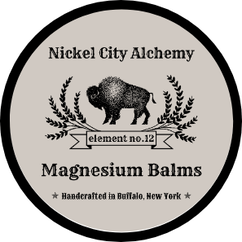

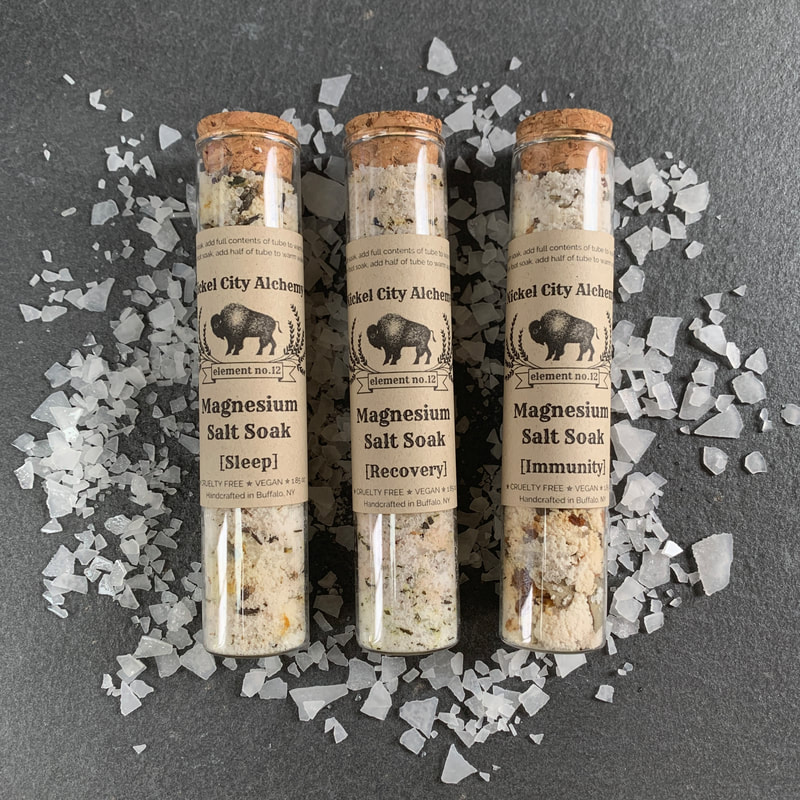
 RSS Feed
RSS Feed